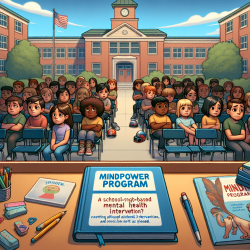Introduction
The journey of enhancing speech and language outcomes for children with 22q11.2 microdeletion is both a challenge and an opportunity. As the most frequent microdeletion syndrome, affecting approximately 1 in 2000 live births, 22q11.2 deletion syndrome (22q11.2DS) is characterized by a high prevalence of speech and language impairments. Recent research provides valuable insights into the speech sounds production, narrative skills, and verbal memory of children with this condition, offering a data-driven approach to improving therapeutic outcomes.
Understanding the Research
A recent study conducted by Rakonjac et al. (2024) explored the articulatory characteristics of speech sounds, spontaneous language abilities, and immediate verbal memory in Serbian-speaking children with 22q11.2 microdeletion. The study compared four groups: children with the microdeletion, those with a phenotype resembling 22q11.2DS but without the microdeletion, children with non-syndromic congenital heart defects, and typically developing peers.
The findings revealed that children with 22q11.2DS have impaired articulation skills and expressive language abilities, though their receptive language skills and immediate verbal memory were comparable to those of healthy controls. This suggests that early intervention focused on articulation and expressive language could be crucial in mitigating the risk of future language-related challenges.
Implications for Practitioners
For speech-language pathologists and educators, these findings underscore the importance of early and targeted interventions. Here are some actionable steps practitioners can take:
- Early Screening and Diagnosis: Implement routine screenings for speech and language impairments in children with 22q11.2DS to facilitate early diagnosis and intervention.
- Focus on Articulation: Develop individualized therapy plans that emphasize articulation exercises, particularly for phonemes that are commonly misarticulated in this population.
- Enhance Expressive Language: Use narrative-based interventions to improve expressive language skills, encouraging children to generate and retell stories using visual aids.
- Monitor Receptive Language and Memory: Although these areas may not be significantly impaired, regular assessments can help ensure that any emerging issues are promptly addressed.
Encouraging Further Research
While this study provides a foundational understanding, further research is essential to explore the nuances of language development in children with 22q11.2DS across different languages and cultural contexts. Practitioners are encouraged to contribute to ongoing research efforts, sharing their clinical experiences and outcomes to build a comprehensive knowledge base.
Conclusion
Empowering children with 22q11.2 microdeletion to achieve their full potential requires a commitment to evidence-based practices and continuous learning. By integrating the insights from recent research into clinical practice, practitioners can play a pivotal role in transforming the speech and language outcomes for these children.
To read the original research paper, please follow this link: Speech Sounds Production, Narrative Skills, and Verbal Memory of Children with 22q11.2 Microdeletion.










